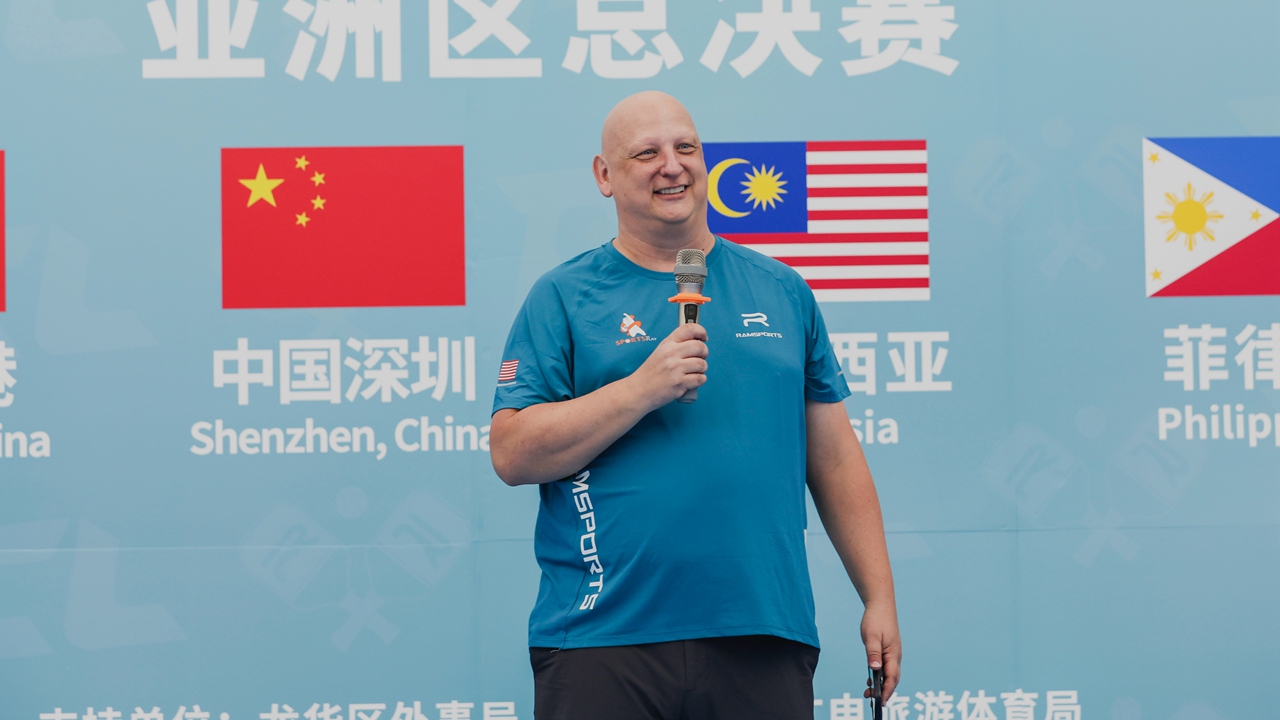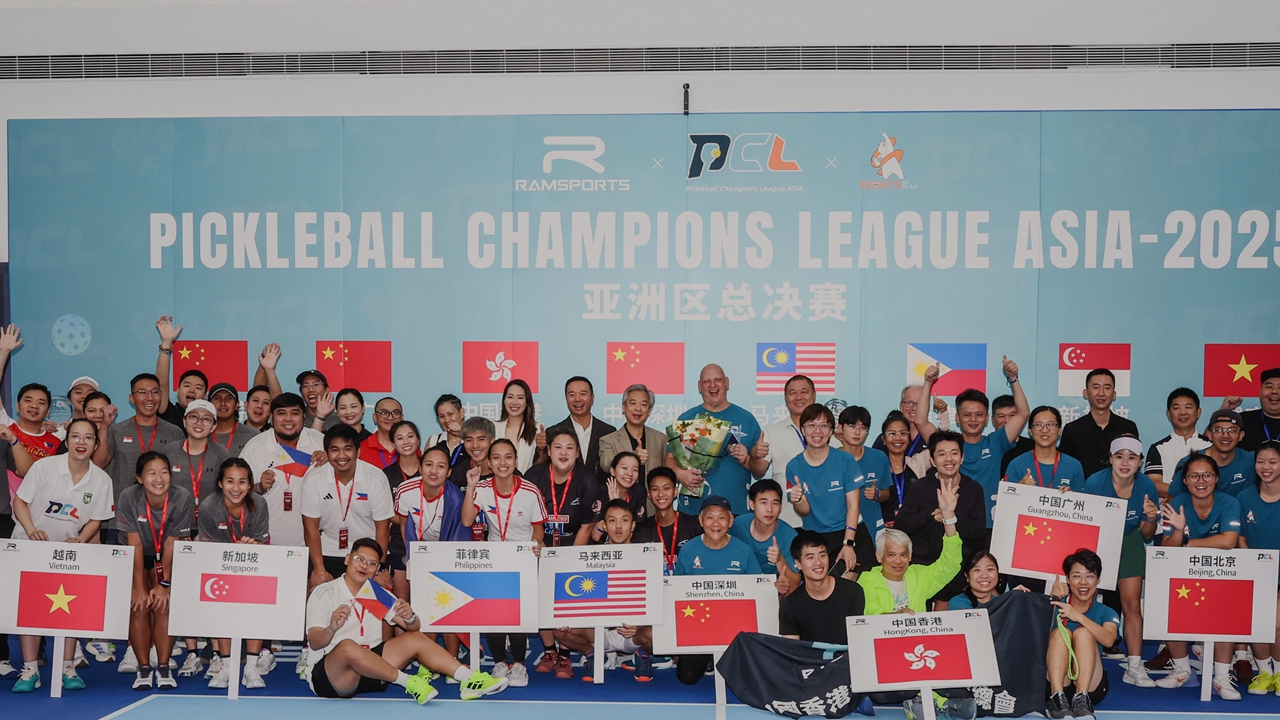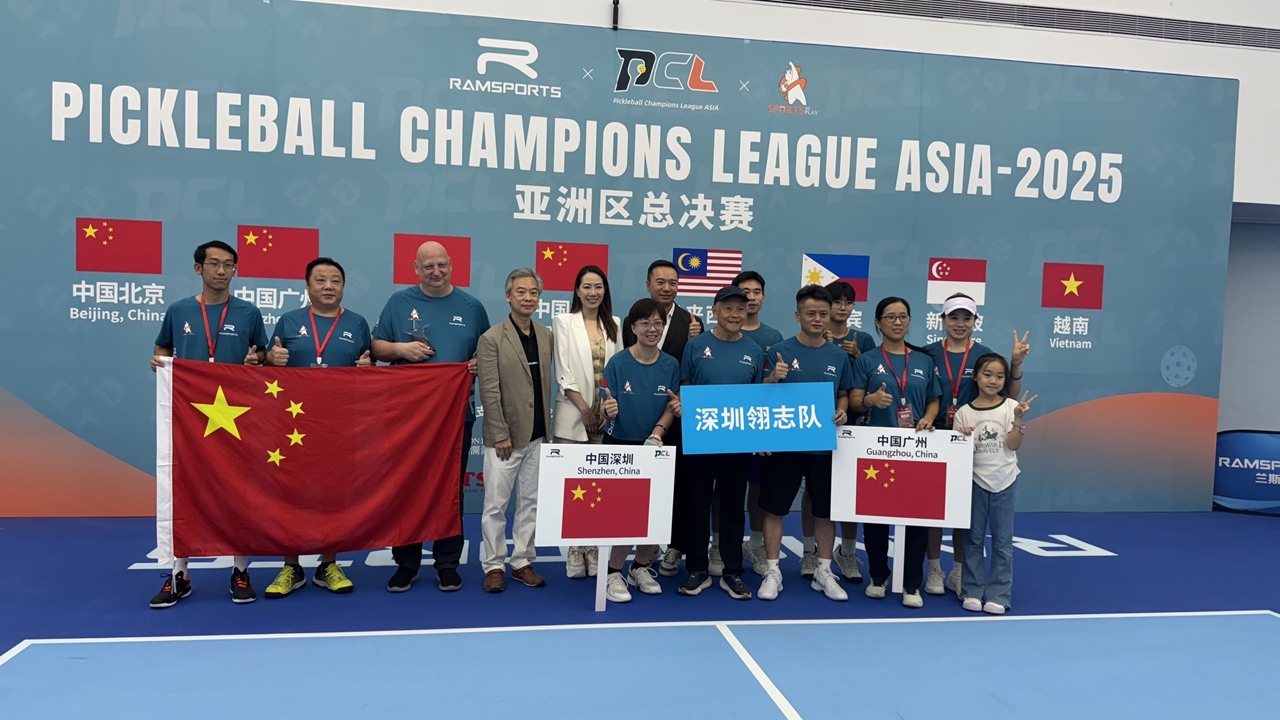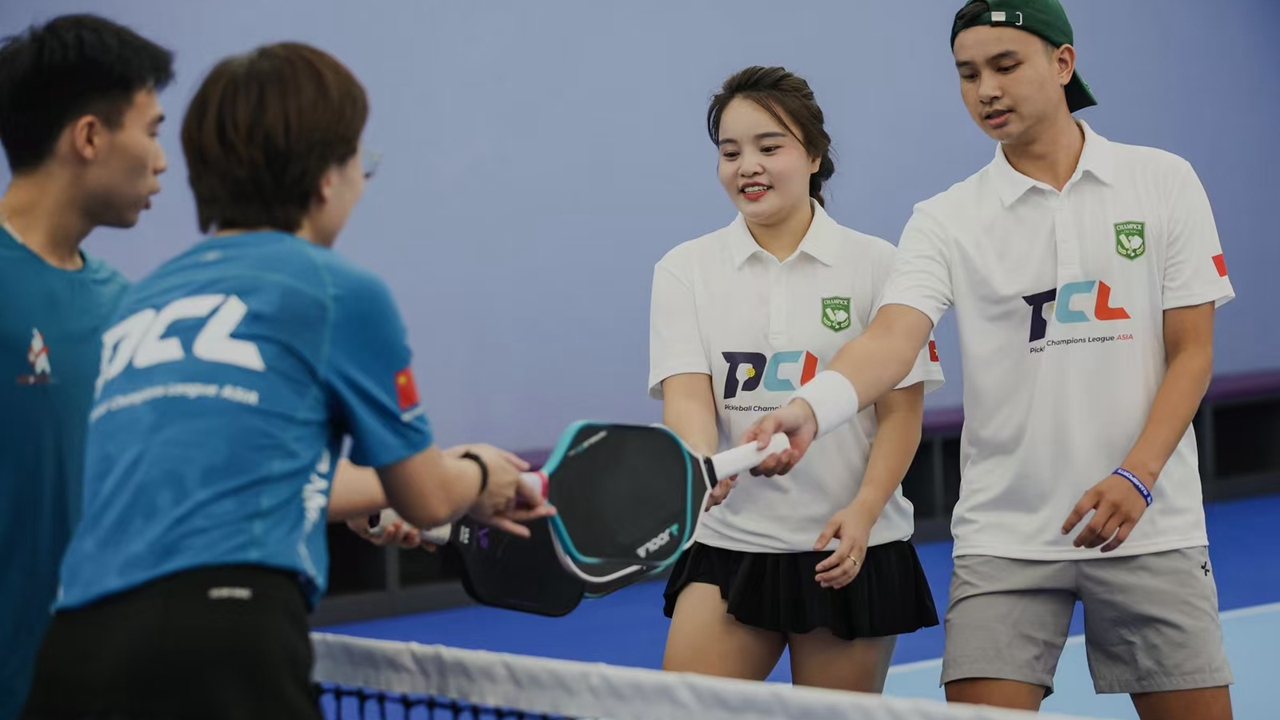'Shenzhen's energy will fuel pickleball's growth'
Writer: Windy Shao | Editor: Lin Qiuying | From: Original | Updated: 2025-08-12
“I've always found Shenzhen to be one of the most energetic and creative places in the world,” Steve Kuhn, founder of the Pickleball Champions League (PCL), said during an interview with Shenzhen Daily on the sidelines of the PCL Asia Finals on Saturday. “When I first came here in 2004 and 2005, it already felt like the city of the future. Now, 20 years later, that’s even more true.”Kuhn’s connection to China goes back two decades, when he spent three years in Beijing teaching students from Tsinghua and Peking universities while traveling extensively across the country.

Steve Kuhn (R), founder of the Pickleball Champions League (PCL). Photos by Shao Jingfeng except otherwise stated
He remembers being “blown away” by Shenzhen’s skyline, dazzling lights, and sense of innovation — a feeling he likens to the energy of Silicon Valley in the U.S. “Every time I come here, I feel this is a place where things are happening — where new ideas, companies, and industries are being born,” he said. “In some ways, there’s no other city like Shenzhen.”
That energy, he believes, is fertile ground for pickleball, the fast-growing sport he’s championing across Asia. Already the fastest-growing sport in U.S. history, Kuhn predicts pickleball will develop rapidly in the world — with Asia leading in player numbers. “I believe it will be the most played sport in the world,” he stressed. Participants of the PCL Asia Finals pose for a group photo at the Ramsports Pickleball Stadium in Shenzhen's Longhua District on Saturday.
Participants of the PCL Asia Finals pose for a group photo at the Ramsports Pickleball Stadium in Shenzhen's Longhua District on Saturday.
Kuhn said choosing Shenzhen as the host city for the finals was an easy decision. “I love China, and I love Shenzhen. We’re working with Ramsports, a fantastic partner that’s innovating to bring pickleball to China and all over Asia. With a city I love, a country I love, and a partner I trust — it was an easy choice.”
“Pickleball is easy to learn, affordable, and doesn’t require as much space as tennis. That accessibility means more people can try it, and more success stories will emerge,” he explained. Drawing parallels with table tennis and badminton, Kuhn noted how some sports born outside Asia eventually became dominated by Asian players. “I think pickleball fits that same pattern.”
Kuhn’s optimism for China’s pickleball scene comes from firsthand experience. “I’ve seen players falling in love with the sport not just in Shenzhen at the Ramsports Stadium here, but in Beijing, Shanghai, and beyond,” he said. “The same signs I saw when pickleball exploded in America are happening here.”

The Shenzhen team in a group photo. Courtesy of Ramsports
For Kuhn, pickleball isn’t just about competition — it’s also about connection.
“This is an amateur competition — everyone here, from players to referees to spectators, is here because they love the sport. Events like today help bring people together.”
From Wall Street to 'Pickleball King'
Kuhn, often dubbed the “Pickleball King,” is a prominent figure in the pickleball world known for his visionary leadership and business ventures.
A Harvard University graduate who studied under Nobel Prize–winning economist Thomas Schelling, Kuhn spent two decades on Wall Street mastering the art of game theory in financial markets.
“Wall Street was like a game,” he recalls. “Every day, you made decisions, you got your score — your profit and loss statement — and you knew if you won or lost.” By the time he retired from finance, Kuhn had built one of the best track records in hedge fund history.
Not done playing
About 10 years ago, Kuhn picked up a paddle for the first time and discovered pickleball. “From the first night, I knew this was something special,” he recalled. The sport’s unique mix of accessibility, strategy, and joy inspired him to launch Major League Pickleball (MLP) and create DUPR, a universal player rating system that allows athletes of all levels to track their progress and compete fairly.
Kuhn’s knack for attracting global attention to the sport is undeniable. When NBA legend LeBron James bought an MLP team, the news generated over 2 billion social media hits. “Even if just a fraction of those people tried pickleball, that’s millions of new players,” Kuhn said.
Now, with PCL Asia, Kuhn’s eyes are firmly on China. Last year, he invested in The Bay Pickle — Hong Kong’s first indoor pickleball venue — and has been working with Ramsports and Mission Hills Group to develop training facilities, AI-powered coaching tools, and competitive leagues across Asia.

Shenzhen players (in blue) greet Vietnam players before a match Saturday.
Kuhn also sees a future in which pickleball is featured in the Olympics. While the sport is unlikely to be a medal event in 2028, he believes it could be a demonstration sport in Los Angeles and a four-medal event by 2032. “When that happens, every country will want to build great teams. That’s when pickleball truly goes global.”
His message to young athletes in China is direct. “Train hard, find players who challenge you, study strategy, and use technology to improve. Most importantly, keep learning. I spend hours every day learning something new, and that’s what keeps me improving — in sports and in life.”
For Kuhn, pickleball is more than a pastime — it’s a movement with transformative potential. “It brings joy, connection, and competition. If we can share that with millions more people, we can make the world a little better.”